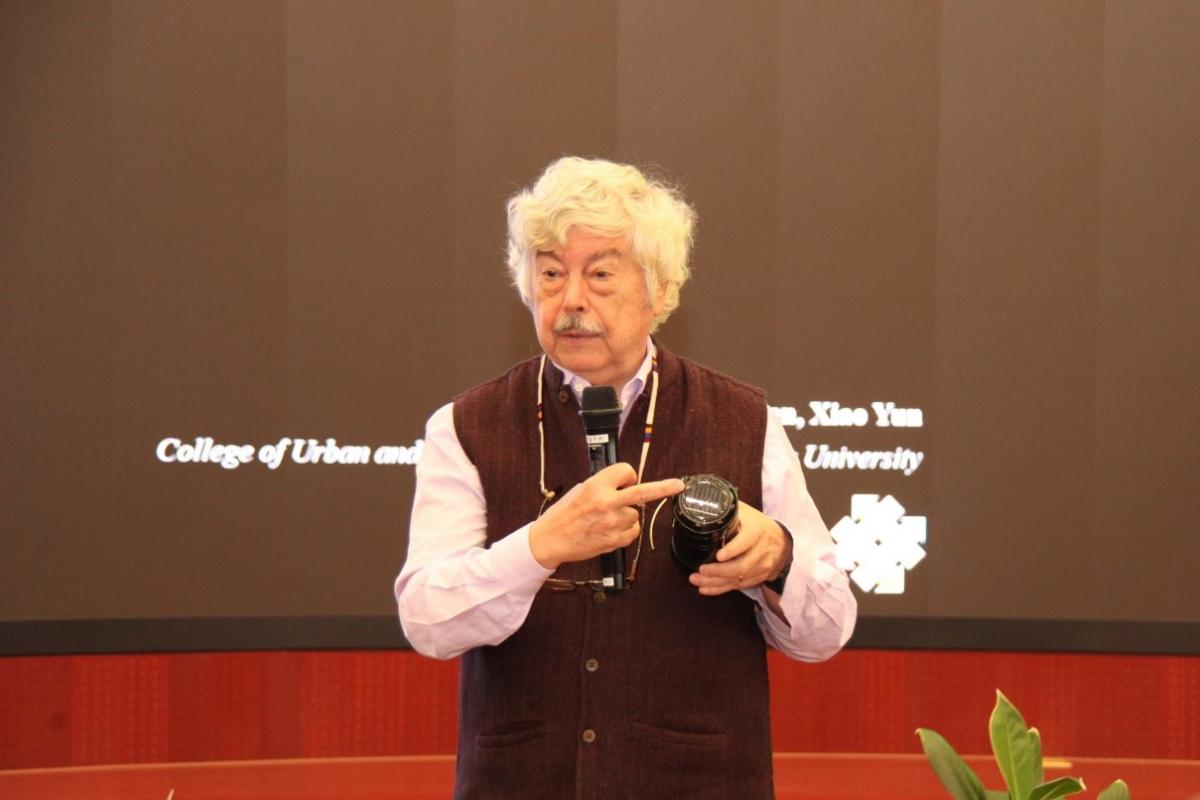Over 150 Delegates Gather in Beijing Forum to Discuss Environmental Health
Beijing Forum 2019 – Environmental Health Panel Session, was successfully held in Beijing on 2-3 November 2019.
Beijing Forum 2019 – Environmental Health Panel Session, was successfully held in Beijing on 2-3 November 2019. This session was organized by College of Environmeal Science and Engineering (CESE), Peking University, and co-organized by Mailman School of Public Health, Columbia University, it is also a joint event of American Geophysical Union (AGU) Centennial and Monsoon Asia Integrated Research for Sustainability-Future Earth (MAIRS-FE).
Beijing Forum is a flagship event initiated in 2004 with general theme on “The Harmony of Civilizations and Prosperity for All”. Beijing Forum endeavors to promote academic development and social progress across the world in order to contribute to the development and prosperity of humankind. Under sub-theme “The Future of Humankind”, the Environmental Health was selected for the first time as a panel session of Beijing Forum 2019, attracting the most influential scientists in this field and more than 150 participants from academic organizations.
Through 8 sessions with 38 speeches, the panel session provided a platform for scholars of environmental health to present their recent research findings and stimulate innovative research ideas and opportunities for collaboration. The discussion reflects comprehensive elements and perspectives, including epidemiologic evidence on the health effects caused by both ambient and indoor pollution, exposure assessment, global health, planetary health and geo-health, emerging techniques and issues in environmental health studies and policy implications.
Dr. Tong Zhu, Dean and Professor, CESE-PKU gave opening remarks to welcome the guests and introduced CESE which is devoted to cutting-edge fundamental research and clean technologies towards sustainability and established Centre for Environmental Health in 2007. Professors Deliang Tang and Gabriel Filippelli, as well as Dr. Wei Wan, also gave opening remarks, on-behalf of Mailman School of Public Health, Columbia University, AGU, and MAIRS-FE, respectively.
Dr. Kirk Smith, Professor, School of Public Health, University of California, Berkeley, made a keynote speech on The Prospects for Exposure Management of Air Pollution: India, China, and California. He summarized the progress of exposure assessment made in three countries and highlighted it was a practical way to give the optimal pathway such that the most health protection would be occurring at each stage of investment, as not all sources are equally important and the society cannot afford to control all sources of air pollution all the time and everywhere.
Dr. Fengchang Wu, vice chief engineer of Chinese Academy of Environmental Sciences gave the second keynote speech on “The preliminary research on the standard of water environment quality in China”. He highlighted the importance of environmental standards for protecting the public health and ecosystem. International experiences and good practices in term of standards development, review and public participation in information disclosure could provide reference for China’s environment management framework.

Dr. Shu Tao, Professor, College of Urban and Environmental Sciences, Peking University gave keynote speech on Health impact of PM2.5 are dominated by residential solid fuel emissions in China. His study on indoor air pollution revealed that residential emissions contributed significantly to health impact in rural areas of China and related health impact was dominated by indoor exposure. The key policy implication was that the control of both residential and non-residential emissions should be emphasized in China’s air pollution policy framework.
The 38 speeches within 8 sessions, covered topics of fundamental and cross-disciplinary researches of environmental health. The last but not least session focused on health and policy discussion. Asia is the region with greatest burden of premature death caused by air pollution in the world, however, current intervention policies will not be sufficient to significantly improve air quality to a healthy level according to WHO air quality guidelines. Implementing science-based control strategy will bring a wide range of health benefits in Asia, especially for those countries with high pollution level. Integrated measures could embed air quality measures in the development agendas and offer powerful incentives for measures that serve the global good.
DATE
November 13, 2019AUTHOR
Future Earth Staff MemberSHARE WITH YOUR NETWORK
RELATED POSTS
Future Earth Community Discuss “Future Risk, Future Earth” at ICRC-CORDEX 2019
Major Congress on “Green Transition:Towards a Sustainable Future” held in Beijing
International Forum on Food-Land-Energy-Water Systems in Asia
